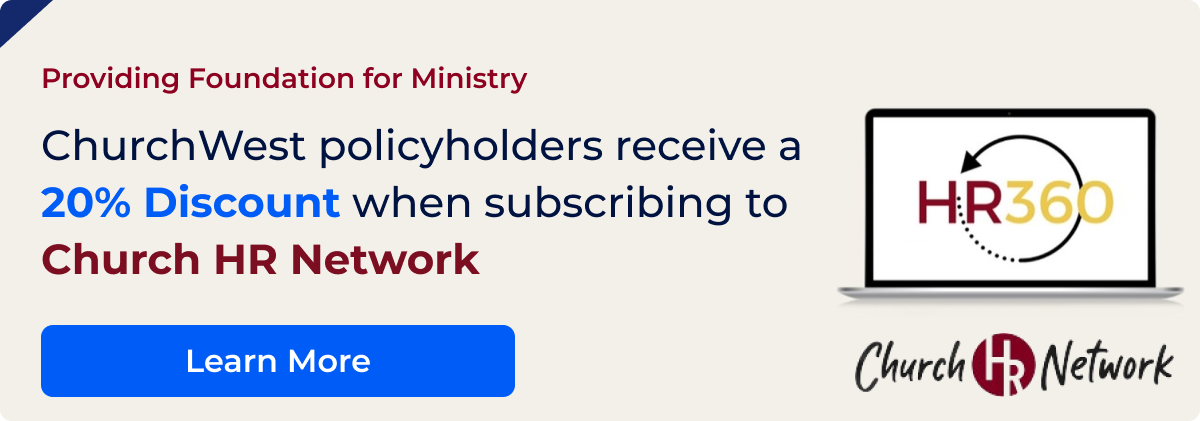If your ministry works with youth, you’ve probably heard about AB-506. However, you may not have yet heard about the new DOJ audits, or the new transparency requirements for California ministries.
These audits are not optional. Every church that serves youth will be audited by the California DOJ to ensure compliance with strict rules for managing Live Scan data. Failure to comply isn’t just an oversight—it’s a violation of the law that could result in fines of up to $10,000 per violation, misdemeanor charges, or even jail time.
Let’s break it down and help your ministry stay compliant while building trust within your community.
Why Non-Compliance Could Shut Down Your Ministry
Compliance with these rules isn’t just about avoiding penalties. It’s about safeguarding your ministry, protecting the privacy of those who serve, and ensuring that you can continue fulfilling your mission. Failing to manage Live Scan data properly could lead to fines of up to $10,000 per violation, legal penalties, or even misdemeanor charges.
Most critically, failure to comply with the DOJ’s requirements can result in losing your ORI number—the unique identifier that grants your ministry the legal right to conduct youth activities in California. Without it, you may be barred from performing essential parts of your ministry.
By properly managing Live Scan data, you’re not only avoiding risks but also demonstrating accountability and showing that your ministry is serious about safeguarding its members. This commitment creates a safe and welcoming environment for everyone involved.
What Is AB-506?
AB-506 introduced some big changes for youth-serving organizations like yours. Now known as Business and Professions Code 18975, this law requires youth serving organizations, like churches, to implement Live Scan background checks through the California DOJ.
This means your ministry can access confidential criminal history information—but it also means you’re responsible for handling that data properly.
Note: if this is all new to you, make sure to check out our original Guide to AB-506 for Churches and Ministries.
The goal behind these changes is simple: to prevent abuse and protect the vulnerable. But the added responsibility can feel overwhelming, especially with the new rules that come with DOJ audits.

How to Prepare for a DOJ Audit
DOJ audits are all about making sure your ministry is handling Live Scan data correctly. While general AB-506 compliance is a critical requirement, that’s not really the focus of these audits.
The new DOJ audits focus on how your church is stewarding your Live Scan data. This includes:
- Annual Signed Authorizations: Do you have signed permissions from everyone you’re currently monitoring? These MUST be renewed every year. Without them, you can’t legally keep monitoring someone through subsequent arrest notifications.
- Tracking Active Participants: Are you keeping track of who’s still active in your ministry? If you’re monitoring someone who’s no longer involved, that’s a problem.
Here’s an example: Let’s say your ministry Live Scanned all its volunteers when AB-506 became law. Over time, some of those volunteers moved on, but your monitoring system wasn’t updated. Now, during a DOJ audit, you’re flagged for monitoring people who no longer have a connection to your ministry. This kind of oversight is exactly what audits aim to prevent.
Transparency with Applicants
Your ministry also has a responsibility to be upfront with applicants and anyone being monitored. Here’s what they need to know:
- Access to Records: They have the right to request their Live Scan results.
- Disputing Records: If they find inaccuracies, they have the right to challenge and correct those records.
Simple Steps to Stay Compliant
Staying compliant doesn’t have to be overwhelming. Here are a few practical steps your ministry can take:
- Maintain Your Records: Review who you’re currently monitoring and make sure you have up-to-date signed authorizations for everyone.
- Keep Your Lists Current: Remove anyone who’s no longer active in your ministry to avoid unnecessary monitoring.
- Communicate Clearly: Let applicants and volunteers know about their rights to access and dispute their Live Scan results.
- Get Expert Help: If you’re unsure about how to implement these changes, reach out to experts like Church HR Network. They can provide one-on-one guidance to help your ministry stay on track.
Why This Matters
Compliance with these rules isn’t just about avoiding penalties. It’s about protecting your ministry, your community, and the people you serve. By properly managing Live Scan data, you’re reducing risks, showing accountability, and demonstrating that your ministry is serious about safeguarding its members. It’s one more way to create a safe and welcoming environment for everyone involved.
What’s Next for Your Ministry?
Take a moment to review your current processes. Are you confident that your ministry is fully compliant? If you’re not sure, now is the time to act. Watch our webinar on Live Scan transparency to get detailed insights and access free follow-up resources tailored to help your ministry stay compliant. Start by reviewing your records, updating your authorizations, and reaching out for expert support if needed.
Resources like Church HR Network are here to help you navigate these requirements and simplify the process. Don’t forget to check out our upcoming HR Bootcamp workshops, where we’ll dive deeper into DOJ audits and provide practical, hands-on guidance for your ministry. With the right steps, you can approach these changes with confidence and continue focusing on what matters most: serving your community.







